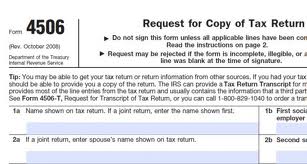Minneapolis, MN: Buying a home for most people is the largest financial transaction of your life. Finding the Best Mortgage Loan Officer that is licensed, educated, experienced, professional and ethical is probably the most important decision you’ll make next to actually picking out that perfect dream home.
Most people these days pick their mortgage company one of three ways:
- Calling the bank where they have their checking account
- Going with whomever the Realtor suggests
- Online search (but usually only for the person quoting the lowest rate)
None of these in and of themselves are right or wrong, but here are some tips to know and understand:
First, understand that the mortgage company or bank that you choose in most cases has little to do with the success of your transaction. Essentially all mortgage lenders have and offer the same basic programs with the same underwriting guidelines. FHA loans for example are FHA loans no matter who you call, so in most cases, there is nothing special that one lender has over another.
Yet for others, there can be some differences, especially if you are on the edges in terms of loan approval. For example, a big bank with the stagecoach in their logo will not offer FHA loans over a 45% debt ratio, while some mortgage brokers (like us) will go to 50% debt-in-income ratio. This is a good example of why a mortgage broker may be a better choice, as they offer the products of multiple lenders, as opposed to just their own.
Using this one example, you may have lost out on your dream home simply because you chose the wrong lender.
Licensed Loan Officer Versus Simply Registered:
All mortgage Loan Officers must have a tracking / registration number known as an NMLS number. But having this number does NOT mean the Loan officer is licensed, or experienced.
Loan Officers at banks, credit unions, or mortgage lenders owned by a bank or credit unions can be, but are NOT required to be licensed in any way. Loan Officers at non-bank mortgage companies or brokers ARE REQUIRED to have an individual mortgage license.![]()
You can check if your Loan officer is simply registered, or fully licensed by searching them on this public web site: www.NMLSconsumerAccess.org.
At the bottom of the page, under licenses and registrations, there will either be one or more states listed, which means the person is licensed. If it indicates something similar to “Federal National Mortgage Originator”, this is a fancy name that means they are NOT licensed.
Being licensed versus simply registered does not automatically indicate if a Loan Officer is a good choice or not, but if one was doing the largest financial transaction of their life, I’d probably lien towards someone who has had to take schooling, pass state and federal testing, and is required to complete continuing education each year to be licensed, versus someone who didn’t have to do any of those things to simply be registered. Heck, even your hairdresser needs a license!
Using this example, you may have lost out on your dream home because of the the unlicensed, and inexperienced Loan Officer you chose.
Understanding Closing Costs and Interest Rates
Not only do most lenders only offer the same underlying loan products as everyone else (Fannie Mae, Freddie Mac, FHA Loans, VA Loans, USDA Loans), but they all have the same underlying closing costs, get the money to lend you from the same source, and interest rates are based on the same bond market everyday.
(Fannie Mae, Freddie Mac, FHA Loans, VA Loans, USDA Loans), but they all have the same underlying closing costs, get the money to lend you from the same source, and interest rates are based on the same bond market everyday.
This is why you’ll notice all standard rate quotes are almost identical. This is why you’ll notice all closing costs quotes are almost identical.
All lenders have the same actual closing costs; appraisal, credit report, state deed taxes, county recording fees, title company charges, underwriting, origination fees, etc. However, how lenders charge them to you can vary, and this is tied directly to your interest rate.
For example, assume your shopping, and one lender says your closing costs are $5,000, and the next says $3,500. The lower price sounds good, and that would be true if the rates were the same. But they almost never will be.
More overhead equals higher rates
Advertising and buildings are expensive. The previously mentioned “Quick” lender for example advertises all day everyday on all TV channels, and radio stations all across the country. You can’t go anywhere on the internet without seeing one of their advertisements.
How much does all that cost? Must be millions. You are foolih to think that higher cost isn’t passed along to you in terms of the interest rate they charge you.
Sames with the big lenders with branches everywhere, and paying hundreds of millions for stadium naming rights.
Lender Credits
Lender credits towards your closing cost is a tool lender use to lower your out-of-pocket closing costs up-front by slightly increasing your interest rate.  By doing this, the lender requires less initially because they make it up by collecting more in interest over time.
By doing this, the lender requires less initially because they make it up by collecting more in interest over time.
Some lenders start right out of the gate by saying they don’t charge origination, or maybe they will pretend to pay for things like your appraisal. Someone is paying those items, and it is always you.
Now there is nothing wrong with taking a slightly higher rate to lower costs today. We do it all the time. But just understand that you are still paying for those costs, just in a different way.
Look at this 30-yr fixed screen shot from today for a $200,000 loan. At 3.875%, lender would charge $750 in discount points to “buy” this lower rate, but at 4,125%, lenders would reduce your closing costs with a lender credit of $2,250. The monthly payment difference between the two rates is $29.00.
Internet Lenders
There is nothing an internet lender can offer you that the local mortgage lender down the street can’t offer. They do not have lower rates, they do not have lower closing costs. But there are many things the internet lender can’t offer.
One big item is local knowledge, and dedication to the community. Some kid working in a cube in Detroit, MI could care less about my back yard or Minneapolis, St Paul, MN.
I constantly get phone calls from people who started a mortgage application with a big internet lender, who is “Quick In” mortgage. They complain about high pressure sales, lack of product knowledge, mandatory up-front fees, failed closings, and more.
I also get a lot of calls from people who filled out an inquiry form at places that “Lend from a Tree”. Funny and cute commercials about applying in your underwear, but this place isn’t even the lender. Rather, they take your name, then sell it to as many real lenders as possible for around $40 a lead. You are then inundated with calls from all these lenders trying to one up the other with false and misleading promises to get you to use them.
Big out-state internet lenders also NEVER have the ability to offer any state of local first time home buyer, or down payment assistance programs.
Using this example, you may have lost out on your dream home because you picked an out-state internet lender who doesn’t offer all the loan products available in your area.
Realtor Referrals
In theory, a Real Estate Agent referral to a Loan officer should be something of value, but not always. This is essentially because there are two underlying types of referrals.
A referral because the Real Estate Agent has worked with the Loan Officer for a long time, and knows them to be a licensed, knowledgeable, experienced mortgage professional looking out for your best interests. This is a good referral.
A referral because the Loan Officer works for the same company, or otherwise is heavily influenced by the owners of the Real Estate Company to refer to a specific lender or internal Loan Officer simply because it makes someone else money regardless of the qualify of the Loan Officer.
While not automatically bad, the second type of referral is highly suspicious. Tips to this type of referral are that the Loan Officer works for the same company, they share office space, or if you have already told your Real Estate Agent you have a lender you are happy with, and they become pushy or start talking negatively about your choice to get you to go to their choice.
The Bottom Line
As you can see, your Loan Officer choice is important. Ask questions, get answers. Just because someone refers, they advertise a lot, or appear to be quoting a super low rate or closing cost doesn’t mean they are the best for you, or that you shouldn’t shop or get a second opinion.
Take the time to pick a great lender, just as you take the time to pick the perfect house.
—————-
Joe Metzler is a Senior Mortgage Loan Officer for Minnesota based Cambria Mortgage. He was named the 2014 Minnesota Loan Officer of the Year, and #98 of the Top 100 Loan Officers in the Nation for 2015 by Origination News. He provides Home Mortgage Loans in MN, WI, IA, ND, SD. He can be reached at (651) 552-3681





 First, understand that because of the large volume of foreclosed properties, it is a great time to be a buyer, whether you are a move-up buyer or a first-time buyer.
First, understand that because of the large volume of foreclosed properties, it is a great time to be a buyer, whether you are a move-up buyer or a first-time buyer.